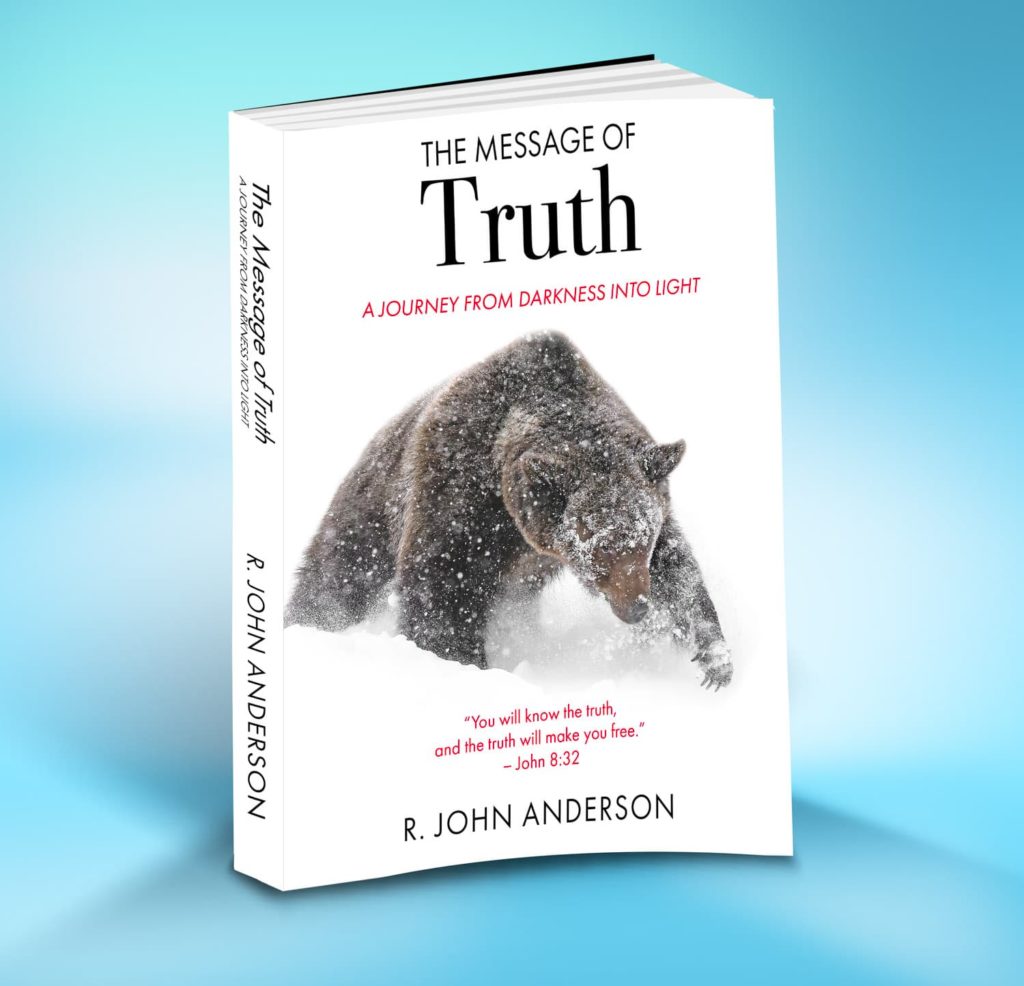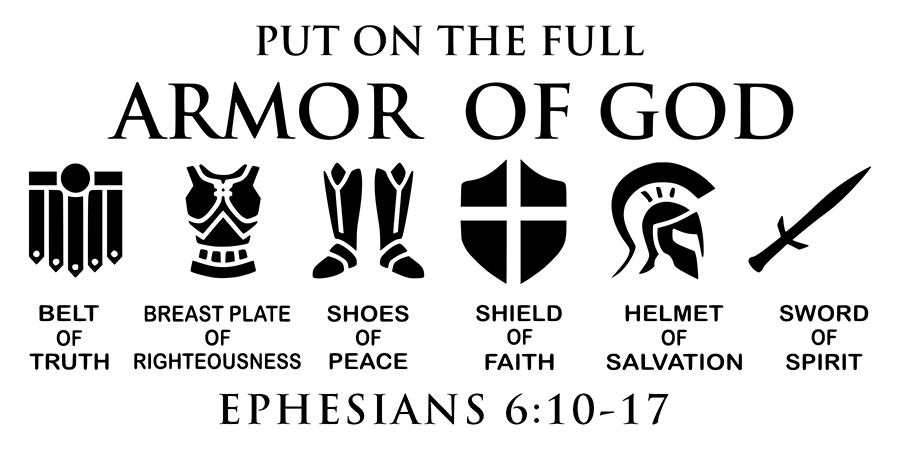(Bible Reading Plan, Get Wisdom)
“It is written, ‘Man shall not live on bread alone,
but on every word that proceeds out of the mouth of God.’” – Matthew 4:4
Many new believers fret needlessly over finding just the right Bible “reading plan.” In fact, entire books, apps, and websites are written and created to help with this, and even further, whole Bibles are cut up and reprinted in some special order that they want you to follow. But most books, including the Bible, tend to have a built-in reading plan, and it’s not very hard to find or remember. So, to cut to the chase, for a new believer, here is the best “reading plan”:
- Start in Genesis 1:1
- Continue reading until Revelation 22:21
- Repeat from step 1
There, I’ve just saved you countless hours and days of frustration in searching through a lot of nonsense trying to find the perfect Bible reading plan! You could also add the reading of one Psalm and Proverb each day if you want – I’ve found those to be very helpful to my soul and to reinforce the assurance of God’s perfect and holy hope as you begin to trust the Lord and His Word in all things at all times.
START AT THE BEGINNING
To emphasize this point: Would you buy a new and exciting romance novel or thriller and then pick it up and start reading it randomly in the middle? I didn’t think so. And yet, some think that it is okay to do just that with the Bible. I confess in truth that I was also under that belief when I was first saved, and I thought that God would (through the Holy Spirit) open the Bible to just the right page I needed. I now see that as nonsense. While the Spirit certainly guides us in all things, it is not how one should regularly approach reading and studying the Bible. The reason you don’t just start reading in the middle (or randomly wherever you happen to open it) is that the beginning of the book introduces the main character (God in our case) and the main plotline for the book’s story (humanity and sin in our case).
Others believe that they can ignore the Old Testament (OT) because it is “obsolete.” I originally did that also, and now realize that is also wrong. Without reading the OT, you won’t understand why we are where we are today or the need for Jesus, or the nature of God Himself, etc. The OT gives context and understanding to the New Testament (NT). You cannot ignore either one; some churches teach that you should only read the NT – that is yet another false teaching!
You won’t understand the NT and Jesus Christ very well if you don’t first understand the OT (God)…for God “is the same yesterday, today and forever” – He never changes. We also see the example of Christ using OT Scripture to explain “all things concerning Himself” to the disciples:
Then beginning with Moses and with all the prophets, He [Jesus] explained to them the things concerning Himself in all the [OT] Scriptures. – Luke 24:27
Matthew Henry writes: [1]
He expounded to them the scriptures of the Old Testament, which spoke of the Messiah, and showed them how they were fulfilled in Jesus of Nazareth, and now can tell them more concerning him than they could before tell him (Luke 24:27): Beginning at Moses, the first inspired writer of the Old Testament, he went in order through all the prophets, and expounded to them the things concerning himself, showing that the sufferings he had now gone through were so far from defeating the prophecies of the scripture concerning him that they were the accomplishment of them.
He began at Moses, who recorded the first promise, in which it was plainly foretold that the Messiah should have his heel bruised, but that by it the serpent’s head should be incurably broken. Note,
First: There are things dispersed throughout all the scriptures concerning Christ, which it is of great advantage to have collected and put together. You cannot go far in any part of Scripture, but you meet with something that has reference to Christ, some prophecy, some promise, some prayer, some type or other; for he is the true treasure his in the field of the Old Testament. A golden thread of gospel grace runs through the whole web of the Old Testament. There is an eye of that white to be discerned in every place.
Secondly: The things concerning Christ need to be expounded. The eunuch, though a scholar, would not pretend to understand them, except some man should guide him (Act 8:31); for they were delivered darkly, according to that dispensation: but now that the veil is taken away the New Testament expounds the Old.
Thirdly: Jesus Christ is himself the best expositor of scripture, particularly the scriptures concerning himself; and even after his resurrection it was in this way that he led people into the knowledge of the mystery concerning himself; not by advancing new notions independent upon the scripture, but by showing how the scripture was fulfilled, and turning them over to the study of it. Even the Apocalypse itself is but a second part of the Old Testament prophecies and has continually an eye to them. If men believe not Moses and the prophets, they are incurable.
Fourthly: In studying the scriptures, it is good to be methodical, and to take them in order; for the Old Testament light shone gradually to the perfect day, and it is good to observe how at sundry times, and in divers manners (subsequent predictions improving and giving light to the preceding ones), God spoke to the fathers concerning his Son, by whom he has now spoken to us.
Some begin their bible at the wrong end, who study the Revelation first; but Christ has here taught us to begin at Moses.
It should be noted that the NT quotes from the OT nearly 900 times, further enhancing the need for modern-day gospel saints to read and understand what is in the OT.
[Side note: However, beware today as many “wolves” push this OT emphasis way too far and resurrect legalism (Sabbath Keeping, etc.) – teaching that we are still (back) under the OT Mosaic Law, and specifically the Ten Commandments, which were given to the ancient Jews. The Mosaic Law (all of it) was done away with (“fulfilled”), nailed to the cross with (and by) Christ. In fact, the entire book of Galatians addresses this very issue. So, the modern practice of honoring the Jewish Sabbath is not supported by Scripture – and if you put yourself back under the bondage/yoke of the Mosaic Law, you must keep all of it perfectly from your birth. No man has ever been able to do that except Christ! So please don’t succumb to the false teachings of those “wolves” who try to place you back under the Mosaic Law of the OT. We are under the law of grace as defined by the NT. See the Sabbath Keeping false teaching in the Beware the Wolves chapter.]
As a bonus, the reading plan I advocate takes no special effort to remember either. And whatever you do, keep going. If you come to some verses or chapters that are tedious to read or hard to understand, do the best you can reading through them, but do not stop. Keep going! The most important thing is to read daily. Your new born again spirit actually needs to be fed God’s Holy Word to survive; it literally starves a bit each day you skip reading God’s word. Yes, it is the Word of God that actually feeds your new born again spirit! Amazing!
Please do not worry that you are not getting enough exposure to the NT right away because you are starting “all the way back” in Genesis. If you follow the other steps that I’m giving you in this section of the book, you will also be reading the NT as a result of those activities.
IT TAKES WORK!
It is often said that “the Bible is just too hard to understand!” I agree that Scripture can be hard to understand in places (e.g., see 2 Peter 3:14-18) – and it was meant to be that way, for you must really want to dig into it and understand the Bible with “ALL YOUR HEART, AND WITH ALL YOUR SOUL, AND WITH ALL YOUR STRENGTH, AND WITH ALL YOUR MIND”! You must want to understand it as if your very life depends on it – and it does, eternally so! You must read it with an open mind and an open heart. You must seek out and love the truth, which is revealed only through God’s Word by God’s wisdom; you must diligently and tirelessly seek it out as if it were more valuable than silver or even gold (Proverbs 2:1-4). You must humbly ask God for His wisdom, and you must ask Him to reveal His Holy Word to you. This is typically done through prayer, often at the start of each study session. Remember, the Bible is God revealing Himself to us.
At first, you almost certainly will not understand all of what is written, but if you continue to diligently and consistently seek, study and meditate on His Word, you will see that He will lead you into all truth, perhaps quickly or perhaps slowly over time – all according to His timing. God often reveals His Word progressively. Ask that He open your eyes and your ears to hear His truth and that He grant you His wisdom. Then press forward in full assurance of His promises (e.g., James 1:5).
And if at first you do not receive wisdom, pray again in persistence – keep asking reverently of God! This lesson is given to us in the parable of the Unjust Judge (Luke 18:1-8). We are to be persistent in prayer and our requests, not in a rude or demanding attitude, but pressing our requests, presenting them before Him in persistence. If you’re like me, one day you may read a portion of Scripture and not really get much out of it, and then at a later time, it’s as if your eyes and ears have been opened, and it just really comes alive to you in understanding and meaning. As you unlock (correctly understand) some truth in one area, that then gives you the ability and understanding to unlock more truth in another area.
I want to also point out that it wasn’t until I stopped trying to always seek out and find errors and contradictions in the Bible (to trap it in a contradiction, if you will) that I really started to grow in understanding it.
Lastly, do you find your time of Bible study and prayer to be a “chore” that you have to force yourself to do each day or a time you relish and look forward to with joy as you spend time with the Lord? People tend to find (make) the time to do the things they really want to do and that they feel are important – are you finding time for reading the Word, or does other stuff always come along and push it off? Reflection on this matter can reveal a lot about your priorities, your heart, and your desire to seek and serve Christ each day.
LEARN PROPER BIBLE INTERPRETATION
In this book, I’ve tried to list as many relevant verses in each chapter as possible, not just to multiply verses, but to show you that correct doctrine can only be attained by considering in aggregate all of what Scripture has to say on any particular topic, for it is written:
The sum of thy word is truth;
And every one of thy righteous ordinances endureth for ever. – Psalm 119:160
You build biblical truth by having interpretations that are in agreement with all Scripture, not just some specific verses you’ve chosen or happen to favor. Nearly all false teachings arise when some verses are picked and interpretations made of those specific verses in isolation, while others are conveniently ignored, which don’t fit with one’s preferred interpretation. One of the most basic principles of Bible study is that if your interpretation and understanding of a verse cause a conflict/disagreement with other simple, clear, literal, and well-understood verses, then it’s your understanding and interpretation that is wrong – for Scripture never contradicts itself. Said another way, if your belief, theology, dogma, or doctrine causes Scripture to contradict itself, it is not Scripture that is wrong; it is your own belief, theology, doctrine, or dogma which is wrong. One must also be a careful reader of Scripture, not reading into it things (or words) that are not there.
Wayne Jackson writes about selective interpretation: [2]
First, it must be recognized that virtually no single passage contains the full complement of information that may be associated with a biblical theme. A failure to recognize this is a common fallacy committed by both secular and sectarian writers in a variety of issues.
For example, skeptics will select a text which mentions a judgment from God inflicted upon a disobedient rebel (e.g., Num. 15:32ff) and then generalize that the Lord must be a harsh, hateful being.
In this procedure, they neglect the scores of passages that reveal the love and mercy of the Creator and his acts of benevolence, along with reasons for those divine judgments of which the skeptic is critical.
Similarly, the faith-only advocate will single out texts that mention only one component of the plan of salvation (e.g., faith; Jn. 3:16; Rom. 5:1) and conclude that salvation is by faith alone, wholly ignoring other complimentary passages (e.g., Acts 2:38).
This is an egregious interpretive flaw.
In closing, remember that it is the daily reading of the Word that enables you to be “growing in the grace and knowledge” of the Lord and which feeds your born-again Spirit in Christ. Just as your body will die without eating food, your new spirit will die without eating spiritual food – the Word of God.
RELATED SCRIPTURE:
“It is written, ‘Man shall not live on bread alone, but on every word that proceeds out of the mouth of God.’” – Matthew 4:4
For the word of God is living and active and sharper than any two-edged sword, and piercing as far as the division of soul and spirit, of both joints and marrow, and able to judge the thoughts and intentions of the heart. – Hebrews 4:12
For whatever was written in earlier times was written for our instruction, so that through perseverance and the encouragement of the Scriptures we might have hope. – Romans 15:4
How blessed is the man who does not walk in the counsel of the wicked,
Nor stand in the path of sinners,
Nor sit in the seat of scoffers!
But his delight is in the law of the Lord,
And in His law he meditates day and night.
He will be like a tree firmly planted by streams of water,
Which yields its fruit in its season
And its leaf does not wither;
And in whatever he does, he prospers. – Psalm 1:1-3
For the Lord gives wisdom;
From His mouth come knowledge and understanding.
He stores up sound wisdom for the upright;
He is a shield to those who walk in integrity,
Guarding the paths of justice,
And He preserves the way of His godly ones. – Proverbs 2:6-8
But if any of you lacks wisdom, let him ask of God, who gives to all generously and without reproach, and it will be given to him. But he must ask in faith without any doubting, for the one who doubts is like the surf of the sea, driven and tossed by the wind. For that man ought not to expect that he will receive anything from the Lord, being a double-minded man, unstable in all his ways. – James 1:5-8
Acquire wisdom! Acquire understanding!
Do not forget nor turn away from the words of my mouth.
“Do not forsake her, and she will guard you;
Love her, and she will watch over you.
“The beginning of wisdom is: Acquire wisdom;
And with all your acquiring, get understanding.
“Prize her, and she will exalt you;
She will honor you if you embrace her.
“She will place on your head a garland of grace;
She will present you with a crown of beauty.” – Proverbs 4:5-9









